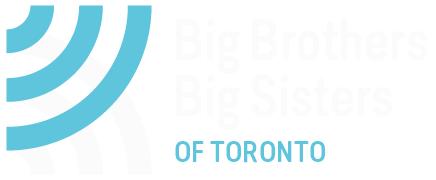Identifying volunteers with day-time availability is one of the biggest challenges Big Brothers Big Sisters of Toronto (BBBST) faces when reviewing applications for its various volunteer programs. When a regular volunteer identified that BBBST’s current volunteer recruitment and engagement efforts did not cater to seniors and early retirees over 55, the staff at BBBST worked quickly to find a fitting solution.
The One-to-One In-School Mentoring program stood out as the best fit. Hence, BBBST created a recruitment strategy for in-school mentoring that lends itself to seniors and early retirees, specifically. That’s how the Big G (grandparent) One-to-One In-School Mentoring program came to fruition.

“Volunteers go into the school for an hour a week and take part in activities the Little wants to do. It’s generally less intense things like baking, arts and crafts, or board games,” says Tara Hartley, Youth Program Specialist for BBBST. However, the one-on-one activities may also include sports or reading, depending again on how the Big G and Little prefer to spend their time together. Hartley further explains, “we often find that the Littles are lacking in self-confidence or have challenges making friends. So those are additional things that the Big G can work on with them.”
Littles in the Big G Mentoring program also have the opportunity to acquire new skills based on the experience of the Big G they are partnered with. Stephanie Hawes, In-School Mentoring Specialist, has seen matches make things together like jewelry and birdhouses, but it goes beyond that as well. “Some of our Big G’s have knowledge about things that perhaps some of our Littles wouldn’t otherwise be exposed to. So, for instance, we have matches who are learning to crochet or are learning to knit. These skills are being passed down to the kids in the times that they meet, and it’s wonderful to see it all come together,” Hawes says.
One of the significant benefits of the in-school mentoring program is that BBBST can provide kids from grades 1-8 the opportunity to access mentoring during a time that is most convenient for their families. When it comes to single-parent homes, their children may not be able to access community-based programs or extracurricular services because a parent is often taking on multiple jobs to make ends meet. That’s why the in-school programs are so important. Hawes explains, “the schools that we work with are amazing and want to do as much as they can for the kids, but they want to invest in our volunteers as well. It’s nice to see that kind of support in moving through this relationship.”
Training is an essential part of the volunteer process at BBBST. Incoming volunteers are trained on the 40 Developmental Assets from the Search Institute. In this training, volunteers learn about all of the different developmental assets in addition to developmental relationship building. “If a child shows that they have more assets, then they’re more likely to succeed and less likely to engage in risky behaviour. So identifying those factors is encompassed in our training along with on-going support from the coordinators.” describes Hartley.
Enthusiasm and participation from both the senior community and the school board have been incredibly positive. “The senior community is always excited to give back. I think oftentimes they miss working with younger kids. Their children, and in some cases, grandchildren, are grown up, so they miss working with that younger demographic.” states Hartley. And from the children’s perspective, Hartley expresses that, “they’re usually really excited to have a Big G showing them off at the school, and are thrilled about the experience as well.”
In some cases, Big G volunteers are happily surprised by their own experience. Hawes describes one instance in particular: “I had a Big G mention that they didn’t anticipate how much they would get in return. They feel a sense of purpose when a Little brings so much joy to their lives, and it becomes the best part of their week coming to see them. So I think there are mutual benefits for both parties, which is great.”
